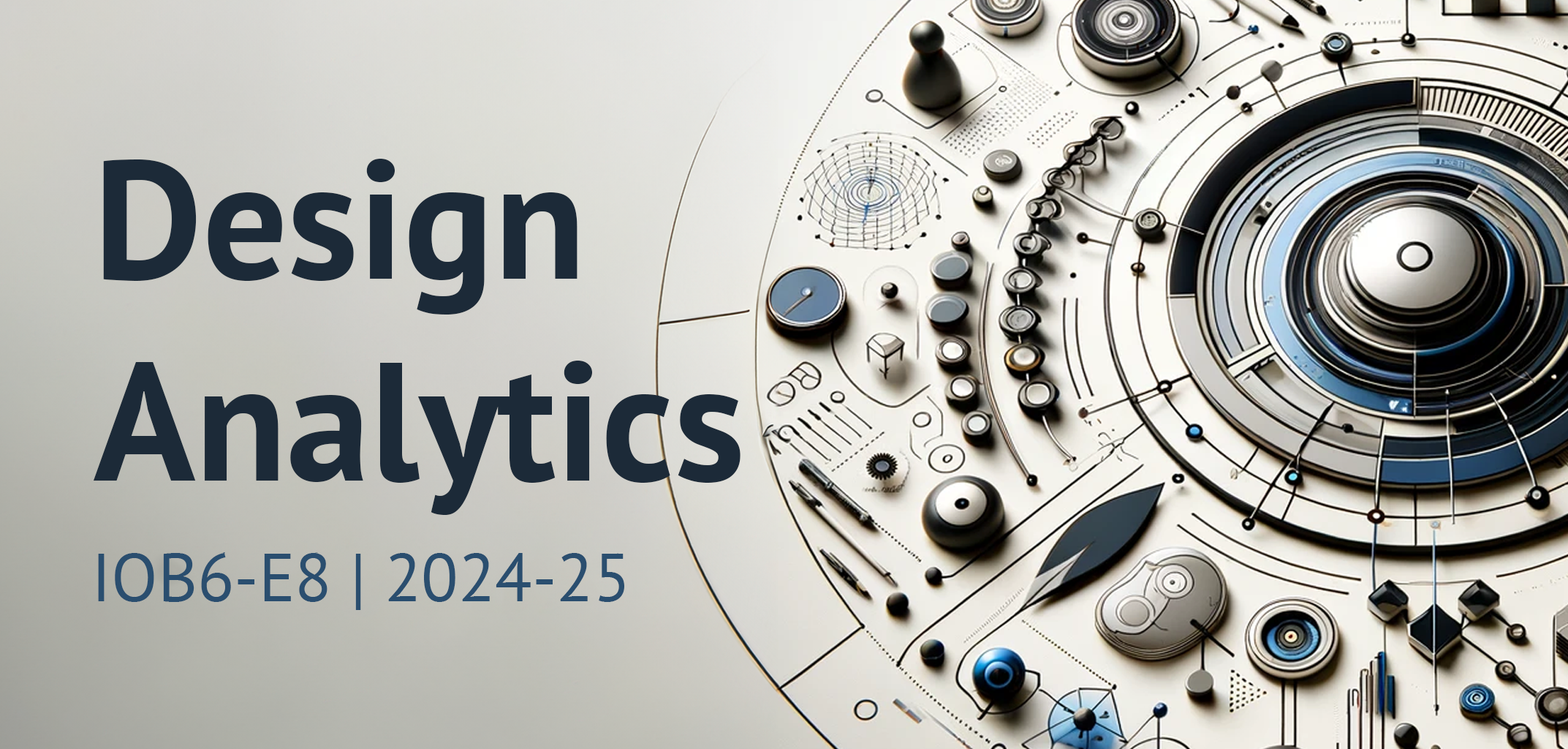Welcome to the Design Analytics
IOB6-E8 | 2024-25

The Course
In this elective, you will gather tools and acquire knowledge to critically evaluate (interactive and intelligent) technological prototypes and set the stage for the next iteration of the design phase by eliciting actionable design guidelines based on comprehensive empirical analysis.
The technological component of this course is demonstrated by the strong focus on the improvement of IPSS (intelligent products, services, and systems) such as, conversational agents, wearables, etc.
Instead of examining the complete human-centric design cycle, you will focus solely on the quantitative assessment of IPSS and examine their cognitive, perceptual, and experiential effects. To this end, you will learn and add skills to your methodological toolkit, which will enable you to:
- design sound experiments (with Control and Experimental groups),
- use sensing technologies (e.g., skin conductance, eye-tracking) and adapt existing data-acquisition tools (e.g., NASA TLX, MSLQ),
- identify the appropriate statistical tests (descriptive vs. inferential; comparison vs. regression),
- discriminate correlation from causation and identify confounding factors, and
- properly communicate the results of your quantitative analysis using scientific means and visualizations to the other stakeholders.
The content of this course is relevant for you because you will learn how to systematically assess your designs with standardized practices and communicate your findings with multiple stakeholders and a broader design-research community. In this way, this course offers an essential ingredient in your transformation from a UX Designer to a UX Researcher.
In this course, you will become familiar with the 5-stage Design Analytics Process (DAP) i.e., design diagnostics, study design synthesis, experimentation, data analysis, and design prescription.
Course outline and syllabus
Below is a weekly description of the topics covered in the course.
- Week 1: Introduction
- Theory vs. Law vs. Hypothesis
- Reasoning: Deductive vs. Inductive vs. Abductive
- Formulating Research Questions
- Research Questions: Quality Assessment
- Week 2: Experimental Research
- Research Questions and Hypotheses Formulation
- Variables: Independent, Dependent, and Process
- Experiment Design: Defining Baseline, A/B Testing, Within/Between/Mixed Designs
- Week 3: Research Methods
- Surveys
- Content Analysis (Interviews, Text Analysis, etc.)
- Week 4: Working with Humans
- Privacy Considerations
- Informed Consent
- Participant’s Rights
- Deceptive Experiments
- Week 5: Analysis I
- Sample Distributions
- Measures of Central Tendancy (Mean, Median, Mode)
- Measure of Variability (Variance, Standard Deviation)
- Confidence Interval
- Null Hypothesis Significance Testing
- Type I & Type II Errors
- Week 6: Analysis II
- Parametric Tests
- Test Assumptions (Normality, Homoscedasticity, etc.)
- Non-Parametric Tests
- Week 7: Analysis III
- Correlations
- Linear Regression
- Week 8: Communicating Analysis Results
- Correlation vs. Causation
- Scientific Visualization
- Summative Assessment I: Group Work
- Group Report Submission Deadline: 11th April 2025; On or before 17:00
- Summative Assessment II: Final Exam
- Exam Date: 15th April 2025